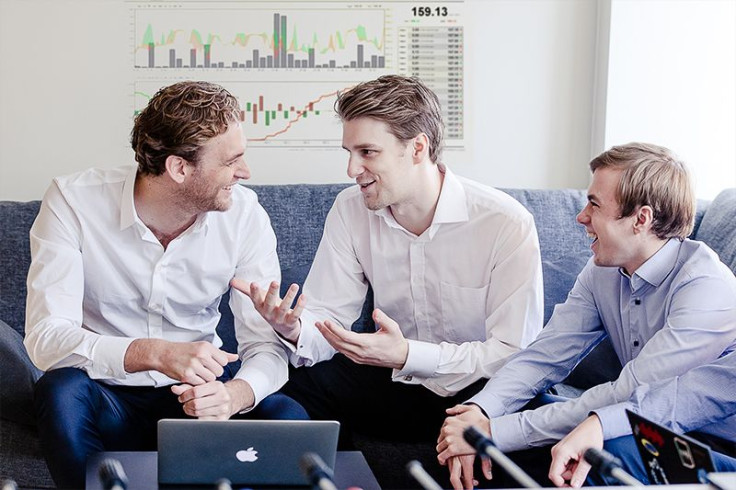Sweden Cryptocurrency Boom: Top 3 Swedish Fintech Startups To Watch

The Swedes have a dubious reputation for being better than Americans at pretty much everything but canned cheese consumption. Swedish economic policy and government efficiency are world renown. Sure, Silicon Valley is still home to PayPal and Coinbase. But Sweden is fostering several fintech game-changers of its own.
The Swedish startup Klarna made waves this summer by launching its own peer-to-peer payment app called Wavy and acquiring a full banking license, which sets Klarna apart as one of the few fintech companies able to compete with traditional banks head-on. TechCrunch described it as a $2 billion startup working the 700,000 e-commerce sites. In June, Visa Inc. announced it is buying a stake in Klarna plus forming a payments partnership. Klarna is now widely considered one of the world’s most promising fintech startups. Although it may be the biggest unicorn to come out of Stockholm so far, it probably won’t be the last.
“Sweden has historically been very strong and building technology platforms,” Frank Schuil, CEO of the Stockholm-based cryptocurrency exchange Safello, told International Business Times. “There are a lot of fintech startups in Stockholm.”
The Stockholm Fintech Hub is less than a year old and is now reportedly home to more than 200 startups, plus representatives from a few global players like IBM and Microsoft. Schuil thinks one of the most interesting things about the Nordic market is how quickly it can evolve once people generally agree a certain mindset or technology, like blockchain systems, is the future. “That’s what we’re seeing now in Stockholm, where I live,” he said.

There is a small but growing demand for bitcoin in Sweden. Sweden’s central bank is even considering the merits of making its own national cryptocurrency. In the meantime, Safello aims to become the “ Coinbase of Europe,” since the European bitcoin landscape is far more diverse than North America in terms of regulation and user habits. Coinbase, arguably the world’s best funded bitcoin exchange, is already available in Europe. However, Safello sets itself apart by focusing exclusively on the needs of European users, including support in nine different languages.
“You have pretty much in every country, their own small, little brokerage,” Schuil said. Each nation often also has its own popular payment methods and electronic government IDs. German buyers might use local apps while the French prefer debit and credit cards. PayPal is pretty popular wherever it is available, although it’s not yet uniformly available across Europe. “Instead of looking at just one payment method, we’ve looked at the local payment methods,” Schuil said. The Swedish exchange sends bitcoin directly to the user’s private address instead of offering to hold funds the user could later cash out.

So far, Schuil said Safello has facilitated $10 million worth of transactions involving tens of thousands of European users. Next, Safello is beefing up its enterprise options.The goal is to make a more cohesive user experience for business owners, individuals and enterprise bitcoin buyers alike. “We already do it for small to medium businesses, so we’re now looking to take it to institutional clients,” Schuil said. “To allow financial institutions to enter a market that is now hard or impossible for them to enter.” Helping banks and other traditional finance players buy cryptocurrency could have a widespread impact for European bitcoin users. In the past, Klarna has also hinted at the potential for easier bitcoin-friendly payment processing.
Klarna and Safello aren’t the only Swedish startups with the potential to completely overhaul how people interact with money. Among all the startups buzzing around Stockholm, Biohax International certainly stands out. Biohax CEO Jowan Osterlund told IBT his team has implanted 3,000 microchips in people’s bodies, usually their hands, most of which happened in the past year. “Now we have requests from all over the world, even Antarctica,” Osterfund said. Demand for this biohacking service continues to grow.
These microchips can be used for purchases like train tickets and food. The Wisconsin company Three Square Market now lets employees buy office snacks with the swipe of a bio hacked hand, while also using the chip as a workplace ID for office equipment. Osterlund said making purchases with a microchip implants is a lot like swiping a credit card, most merchants require the user enter a pin code or verification so purchases can’t be faked or made by accident. He believes microchips could remove the need for physical money altogether. “We’re inventing a brand new way for people to shop.” Osterlund said.
Sweden is already a largely cashless society, where mobile payments, swipeable cards and cryptocurrency trump paper bills. If biohacking technology like Biohax’s microchip could sync up with bitcoin wallets and other decentralized financial channels, it could open whole new world of possibilities. People could use cryptocurrency even without a mobile phone or computer. For online purchases, users could theoretically use their phones to swipe a scanner. Tax evasion and identity theft would become far more difficult, while access to financial services spread beyond the realm of mobile apps and plastic cards. “It’s like a vault door for your online persona, your digital persona,” Osterlund said. “I want to make petroleum plastic cards obsolete.”
© Copyright IBTimes 2024. All rights reserved.





















